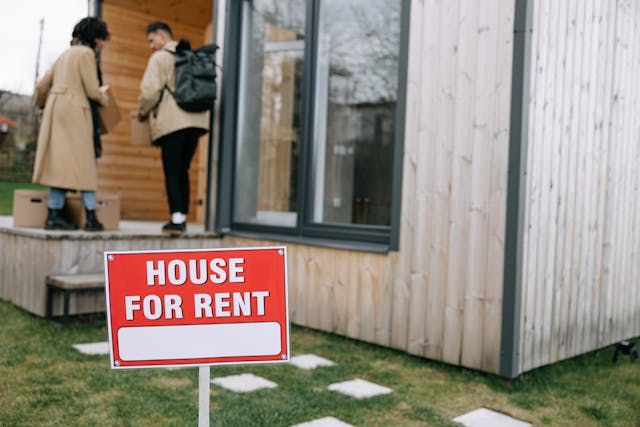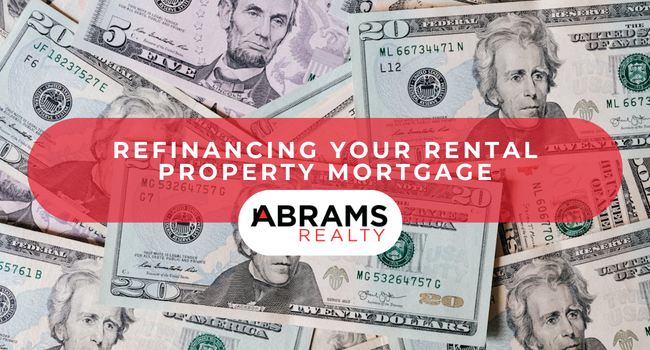Key Takeaways
- Refinancing can significantly increase your rental profits: Lowering your interest rate or adjusting your loan term can reduce monthly payments and save you thousands over the life of the mortgage.
- You can improve your monthly cash flow: Refinancing allows you to either lengthen your repayment term or secure a lower rate, both of which can free up more monthly income.
- You can access built-up equity to grow your portfolio: A cash-out refinance lets you tap into your property’s equity to pay down debt, reinvest, or purchase additional properties.
- Meeting lender requirements is essential for approval: Qualifying factors include having at least 25% equity, strong credit, reliable non-rental income, and a manageable debt-to-income ratio.
Is your mortgage loan limiting your profits and consequently your investment growth prospects? If it is, you may want to consider refinancing your rental property.
Now is especially a good time to do so. The mortgage rates are declining, and so are the Federal Funds rate.
With this guide from Abrams Realty, you will learn important things about refinancing your rental property, before you start the process.
Why Should You Refinance Your Rental Property?
If you are considering refinancing your rental property, here are some benefits to doing so:
Secure a Lower Interest Rate
If you’re struggling with a relatively high interest rate, you could be taking a lot from your profits. Luckily for you, refinancing your rental property could help lower your interest rates.

Suppose, for instance, that you have a 6% annual percentage rate (APR) on a 30-year, $150,000 loan. If you could manage to reduce it by just one percentage point (5%), it could save you almost $34,000 over the life of the mortgage.
Ultimately, though, the interest rate you get will depend on a myriad of factors. Including your credit rating, the housing market, your income, and other requirements set by your lender.
Change the Repayment Term
If your goal is to own the home sooner, then refinancing your rental property can help you meet that goal. This would require you to increase your monthly payments, by doing so, you’ll be able to lower your overall interest payments.
Lengthening the repayment term could reduce your monthly payments. In turn, this could lower your monthly payments and free up more cash for you to do other things. However, the overall interest payments will go high.
Boost Your Cash Flow
It’s possible that the payments you’re making each month could be taking a large portion of your rental income. Refinancing your rental property can help free up more cash flow.
Generally, there are two ways in which you’d be able to boost your cash flow. One is to consider lengthening the repayment term. While this could cost you more in interest charges, it can result in lower monthly payments.

The other way is by securing a lower mortgage rate. One percentage drop could save you thousands of dollars over the entire duration of serving the loan.
Tap the Built-Up Equity
Refinancing your rental property can help release the equity you’ve built up in the property. You may then use the money from the cash-out refinance to pay off debts, buy more property, or for other things.
Before considering a cash-out refinance, ensure you consider the potential drawbacks. For instance, that could effectively mean “resetting the clock” if you were already several years into paying off your original mortgage.
What are the Requirements for Refinancing a Rental Property?
Before you begin the application process, the following are the requirements you must meet:
Loan-to-Value Ratio: Before applying for a rental property refinance, ensure that the equity you’ve built up is at least 25% of the property value.
Good Credit: Before a lender can agree to refinance your rental property, you must have good credit. A good credit rating, which is at least 620, can help you secure a lower interest rate.
Eligible Income: Rental income won’t qualify you for refinancing. Because of this, you’ll need to have other sources of income.
Debt-to-Income Ratio: The lender will consider your debt-to-income ratio as well. Ideally, make sure you have a DTI of up to 50%. Just divide your monthly debt payments by your gross monthly income to get the ratio, then multiply the result by 100 to get the percentage.

What Steps Should You Follow When Refinancing Your Rental Property?
The steps one has to take to successfully refinance their rental property vary from one lender to the other. The specific circumstances may vary as well.
Generally, these are the steps you will need to follow:
Get your paperwork in order. These can include pay stubs, W-2 forms, financial statements, and proof of homeowners' insurance.
Submit your application. Once you have all the required paperwork, you can apply.
Wait for approval. Hopefully, you’ll be successful in your application process and the lender will approve it. Once they do that, review the offer and lock it right away.
Wait for the underwriting and close the loan. On average, the whole process could take about 45 days to complete.
Conclusion
And there you have it. The rationale for refinancing your rental property, the conditions you must fulfill, and the procedures you must adhere to in order to succeed. But just like any savvy landlord would do, ensure you involve a seasoned professional.
Abrams Realty is a full-service property management company serving Virginia Beach, and the surrounding areas. You can count on us for sound real estate advice and expert property management help. Get in touch to learn more!


